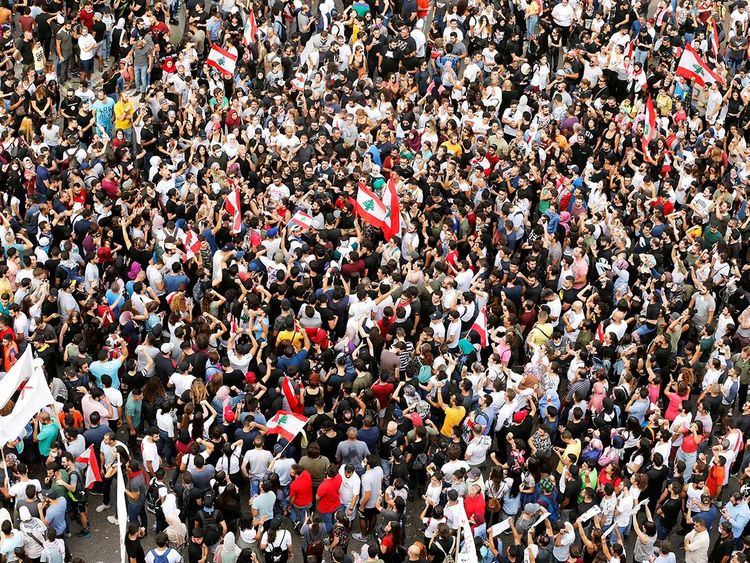
By MATTHEW LEE AP Diplomatic Writer WASHINGTON (AP) – The Trump administration is withholding more than $100 million in U.S. military assistance to Lebanon that has been approved by Congress and is favored by his national security team, an assertion of executive control of foreign aid that is similar to the delay in support for Ukraine at the center of the impeachment inquiry. Secretary of State Mike Pompeo on Friday congratulated Lebanon as the country marked its independence day but made no mention of the hold-up in aid that State Department and Pentagon officials have complained about for weeks.
It came up in impeachment testimony by David Hale, the No. 3 official in the State Department, according to the transcript of the closed-door hearing released this week. He described growing consternation among diplomats as the administration would neither release the aid nor provide an explanation for the hold. “People started asking: What’s the problem?” Hale told the impeachment investigators. The White House and the Office of Management and Budget have declined to comment on the matter. The $105 million in Foreign Military Funding for the Lebanese Armed Forces has languished for months, awaiting approval from the Office of Management and Budget despite congressional approval, an early September notification to lawmakers that it would be spent and overwhelming support for it from the Pentagon, State Department and National Security Council.
As with the Ukraine assistance, OMB has not explained the reason for the delay. However, unlike Ukraine, there is no suggestion that President Donald Trump is seeking “a favor” from Lebanon to release it, according to five officials familiar with the matter. The mystery has only added to the consternation of the national security community, which believes the assistance that pays for American-made military equipment for the Lebanese army is essential, particularly as Lebanon reels in financial chaos and mass protests. The aid is important to counter Iran’s influence in Iran, which is highlighted by the presence of the Iranian-supported Shiite Hezbollah movement in the government and the group’s militias, the officials said. There is opposition to aid to the Lebanese army from outside the NSC. Pro-Israel hawks in Congress have long sought to de-fund the Lebanese military, arguing that it has been compromised by Hezbollah, which the U.S. designates as a “foreign terrorist organization.” But the Pentagon and State Department reject that view, saying the army is the only independent Lebanese institution capable of resisting Hezbollah. Outside experts agree.










